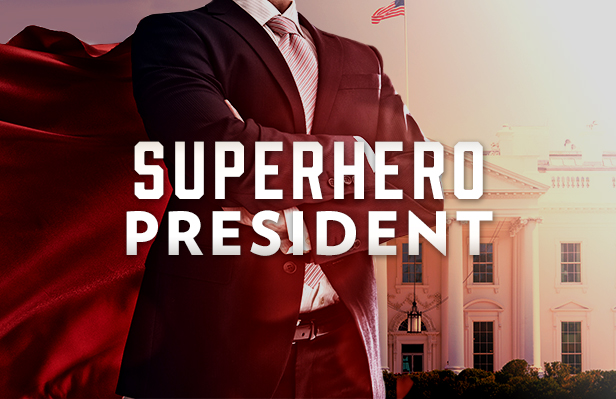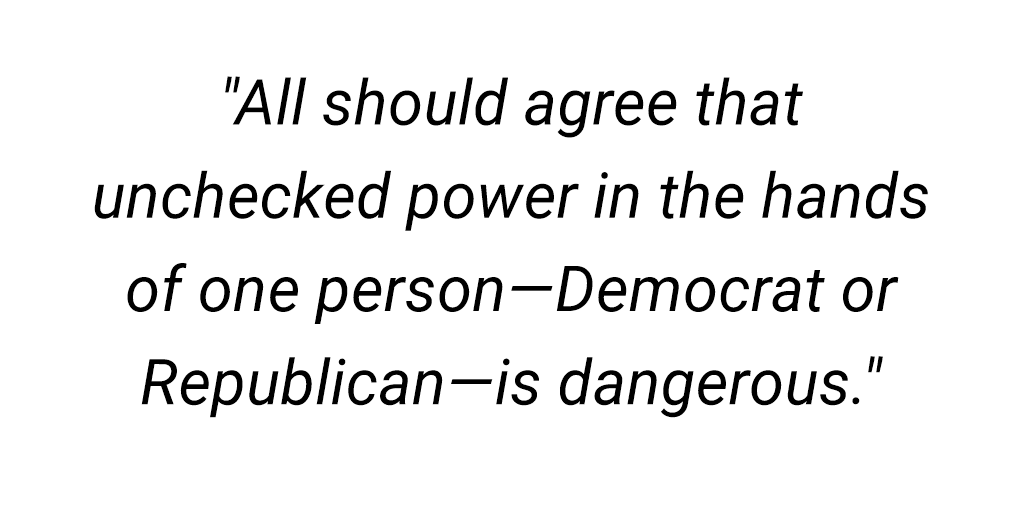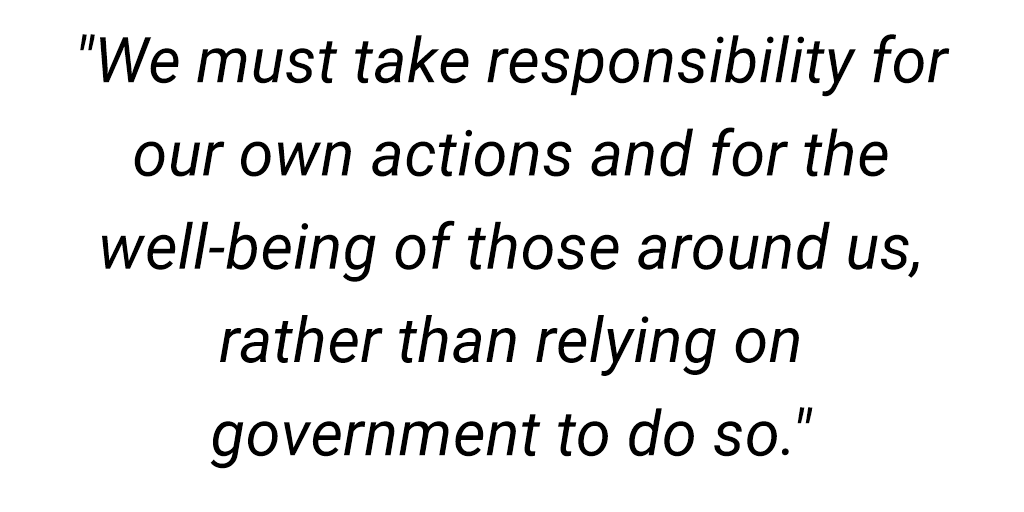Commentary

A Superhero President? Dream On
Note: This commentary appeared in the Lancaster LNP, among other news outlets.
If the thought of Hillary Clinton or Donald Trump in the Oval Office frightens you, you’re not alone. Polling suggests Clinton would be the second-most disliked presidential nominee ever—trailing only Trump. Almost two-thirds of voters say neither is “honest” or “trustworthy.”
If that disturbs you, here’s an idea: Maybe it’s time we give the president—and the government—less control over our daily lives. Ultimately, both Trump and Clinton have the same message: “Put me in charge and government will solve all your problems.” Don’t believe them.
Politicians often cast themselves as superheroes. President Obama’s claim that his election “was the moment when the rise of the oceans began to slow” or the GOP slogan “Bush kept us safe from terrorism” echo the idea of a heroic president. Alarmingly, Bush and Obama both used their heroic images to centralize authority in the Presidency.
Liberals objected to Bush’s war powers and his expanded surveillance of Americans. Conservatives decry Obama's executive orders and unilateral actions. Unfortunately, both liberals and conservatives suppressed their concerns when “their guy” held the reins of power.
 Partisanship aside, all should agree that unchecked power in the hands of one person—Democrat or Republican—is dangerous. But in recent decades, we’ve willingly ceded power to a single person.
Partisanship aside, all should agree that unchecked power in the hands of one person—Democrat or Republican—is dangerous. But in recent decades, we’ve willingly ceded power to a single person.
We’ve expanded the role of government and shifted power from the state and local to the federal government. At the same time, presidents have acquired more authority at Congress’ expense.
In essence, we’ve concentrated power in the hands of officials furthest from those they claim to serve: we the people.
The result? We now let government decide what health insurance we must buy, if our kids can set up a lemonade stand, which companies “win” by receiving taxpayer subsidies, and who can use what restroom.
Ironically, government is gaining power even as more and more Americans distrust government. Moreover, as Washington D.C. expands its role, voters—by dramatic margins—view local and state government more favorably than the federal government.
How can Americans regain the control that’s been ceded to the federal government? First, we must stop expecting the president to “run the economy” and leave more decisions to individuals, families, and businesses.
Members of Congress must be a check and balance on the President and reassert their authority as a co-equal branch of government.
State officials have a role as well and must reject federal overreach that demands compliance with burdensome mandates in return for dollars funneled through Washington. Our constitutional system grants only “few and defined” powers to the federal government and reserves all other powers to the states and the people.
Instead, lawmakers should adopt a block-grant approach to federal funds, ensuring states have more control over how the people’s money is spent.
Finally, we as individuals and families must take responsibility for our own actions and for the well-being of those around us, rather than relying on government to do so.
For too long, we have tacitly surrendered our rights and accepted bigger and more distant government, ultimately expecting one person—the president—to turn things around.
 Here’s the bottom line: If you are waiting for a superhero in the oval office to give you a pay raise, help the aging widow next door, or teach your kids the values that made America prosperous, stop daydreaming.
Here’s the bottom line: If you are waiting for a superhero in the oval office to give you a pay raise, help the aging widow next door, or teach your kids the values that made America prosperous, stop daydreaming.
Whether you want to “make America great again,” believe “it takes a village,” or feel like abandoning the whole political process, the prescription is the same—get up and do something about it.
Participate in your local church, volunteer with a homeless shelter or food bank, join a Kiwanis club, start a new business, or give to your favorite charity.
Indeed, conservative, liberal, and libertarian analysts alike point to the value of charitable giving and civic participation.
It shouldn’t matter who is in the White House: The solutions to our country’s woes will come not from hero-politicians, but from individuals, families, small businesses, civic organizations, churches, charities, and, ultimately, from you.
# # #
Nathan A. Benefield is vice president of policy for the Commonwealth Foundation,
Pennsylvania’s free market think tank.